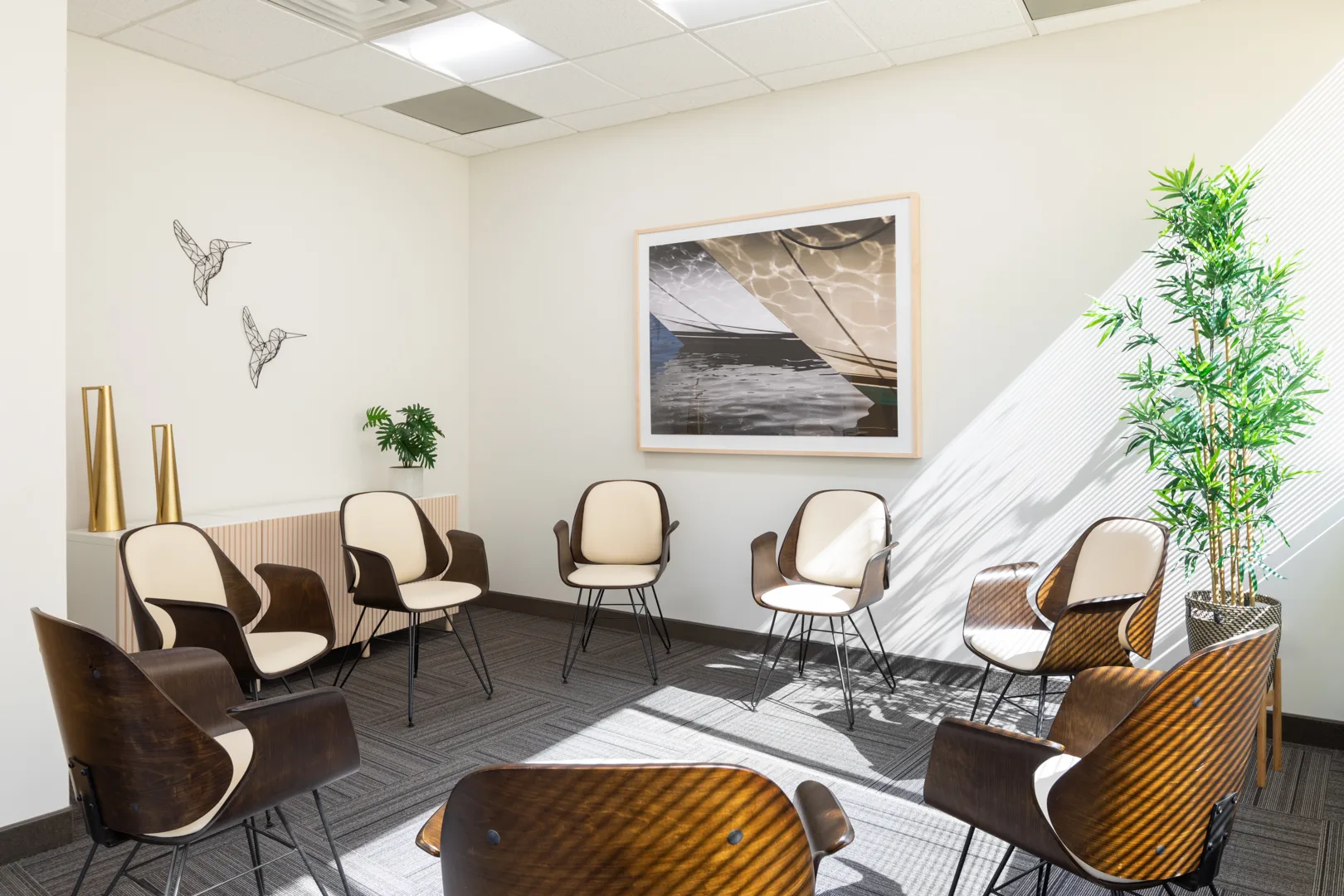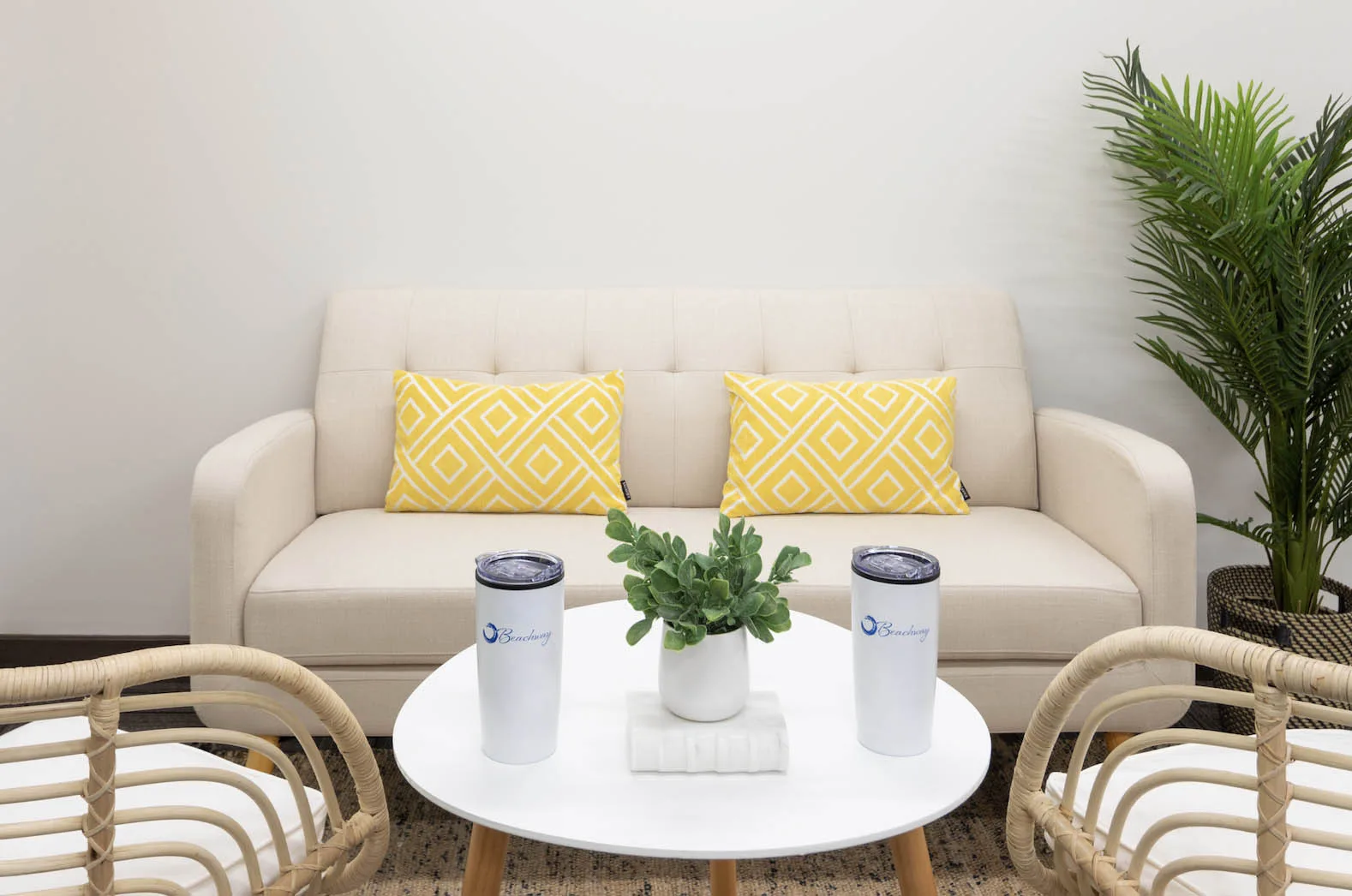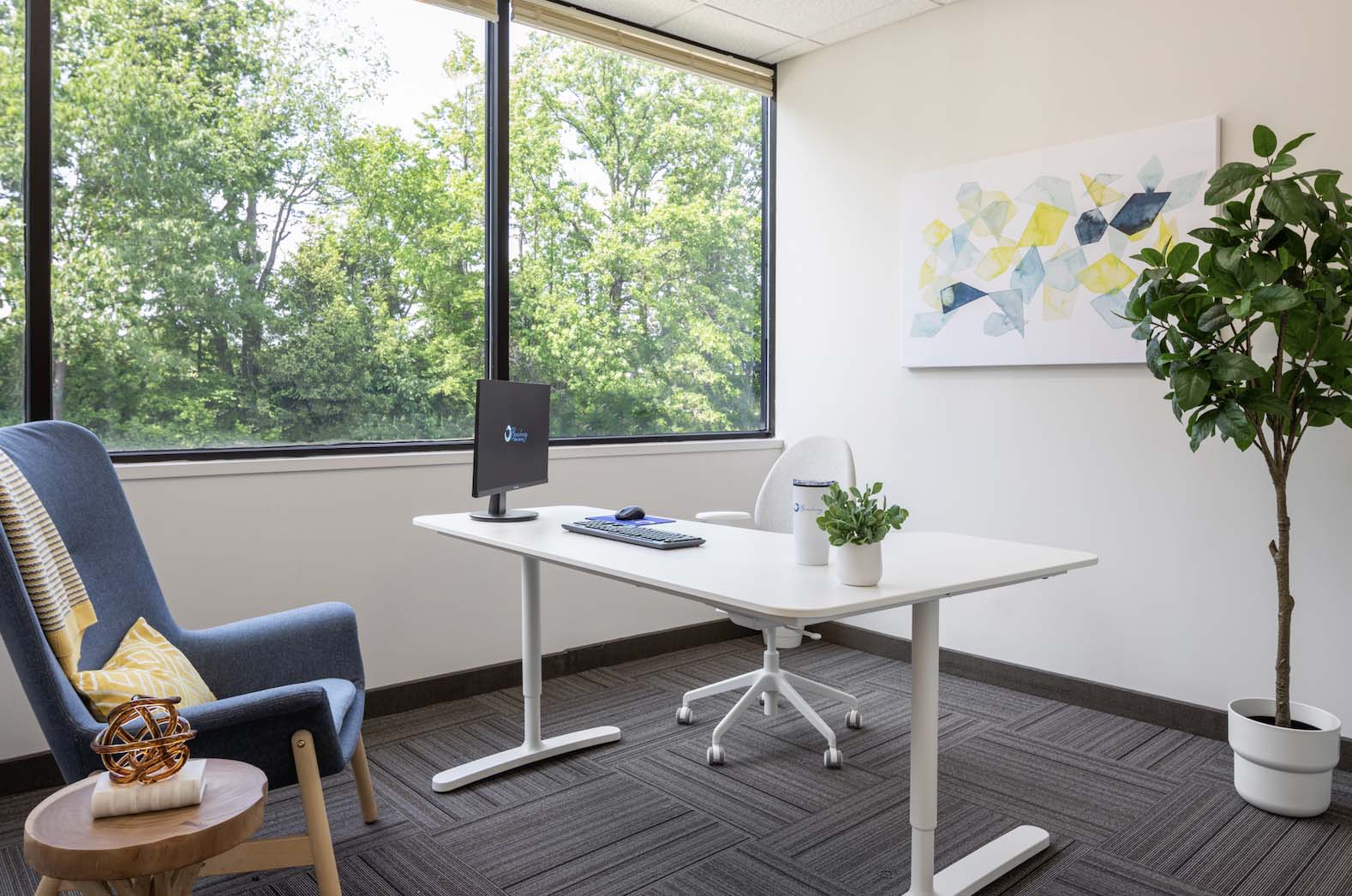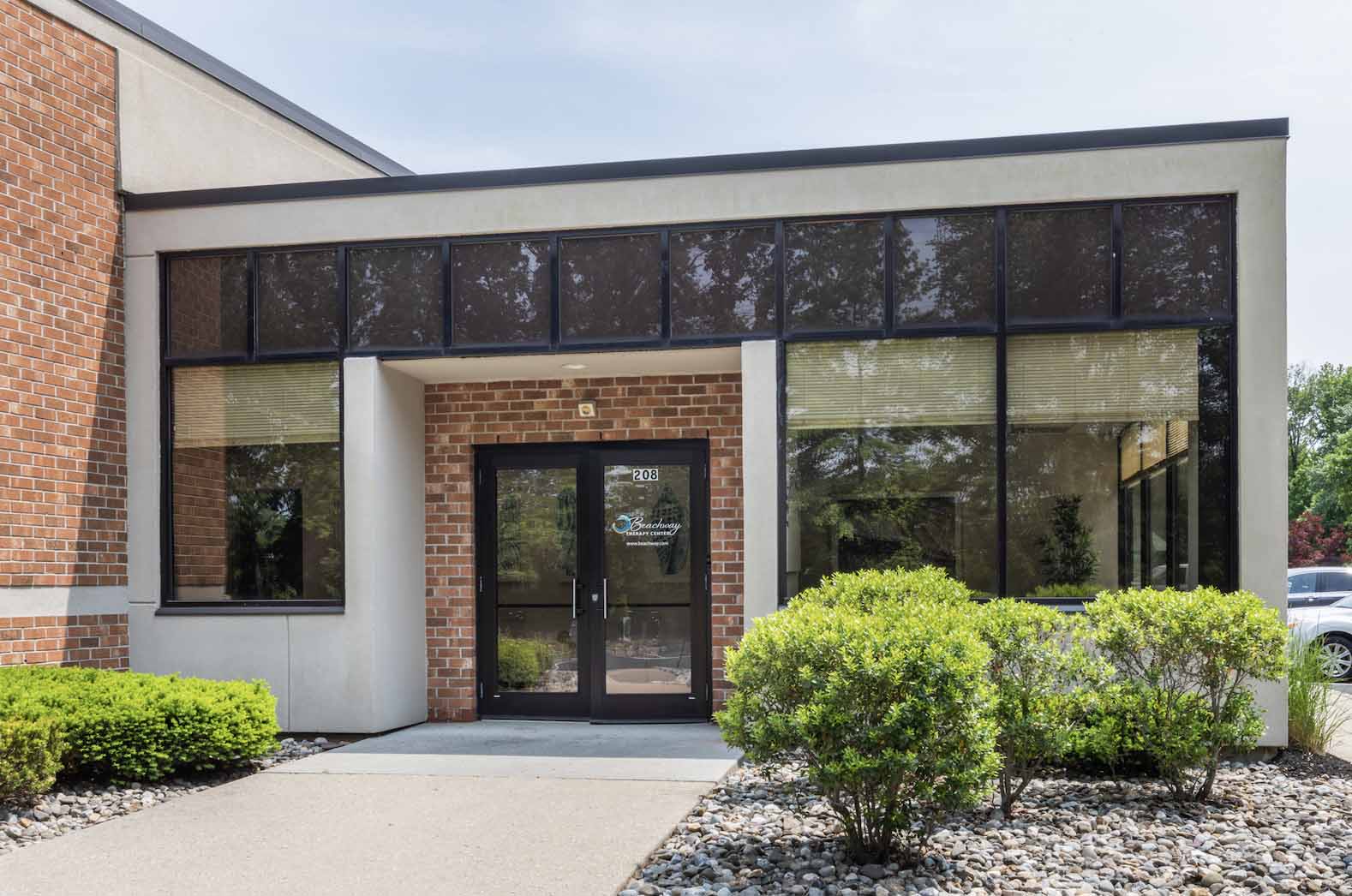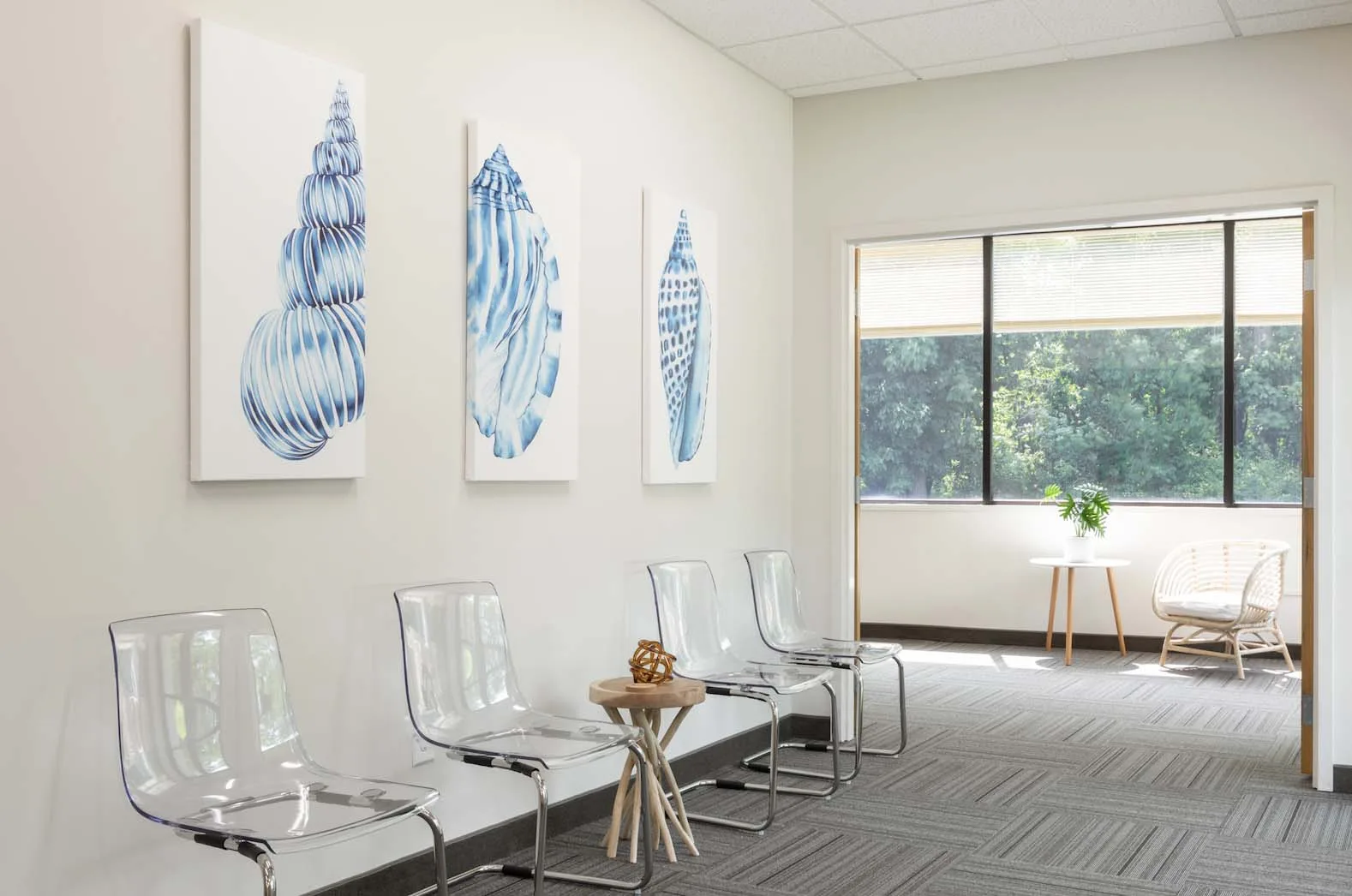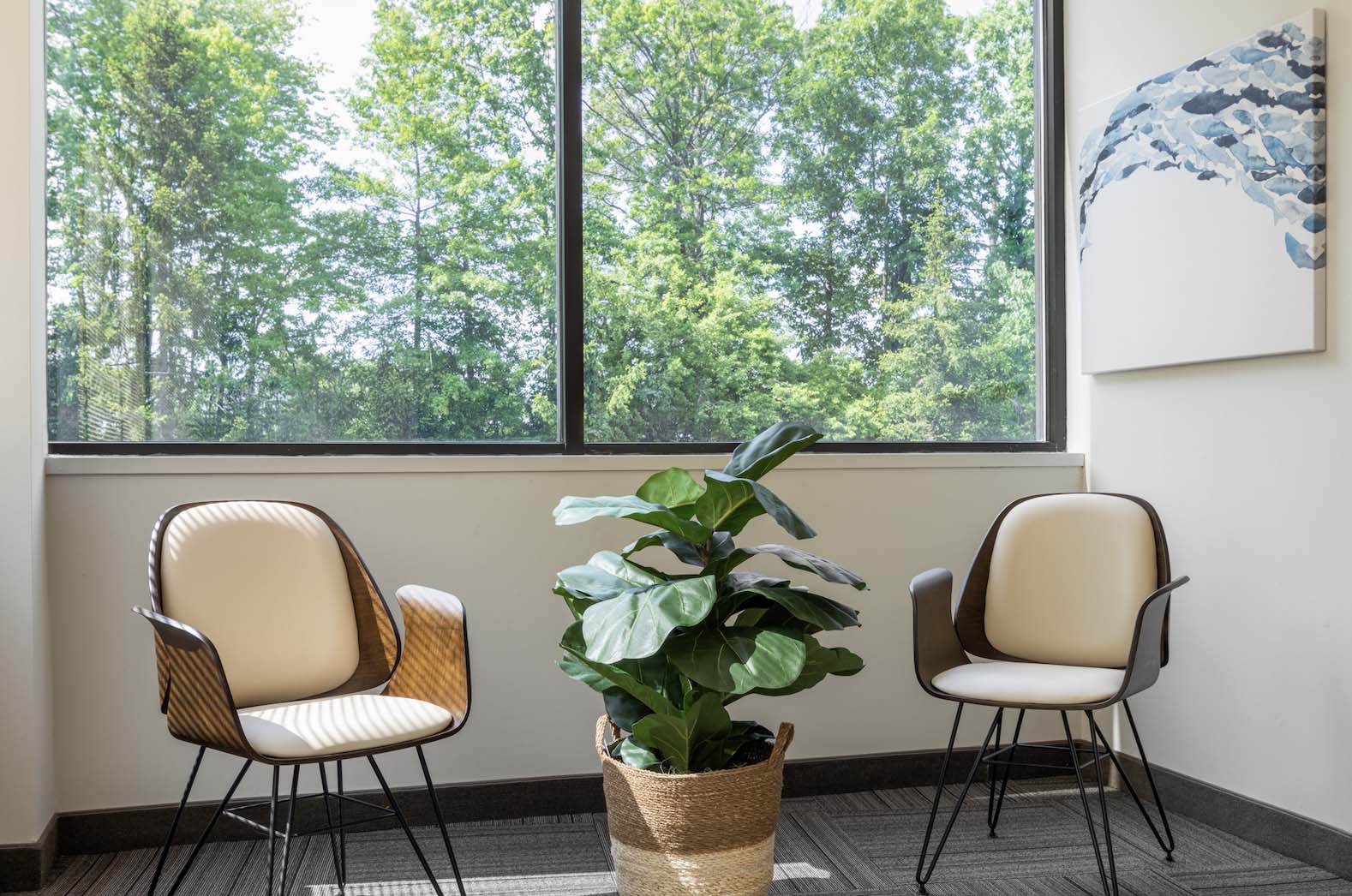
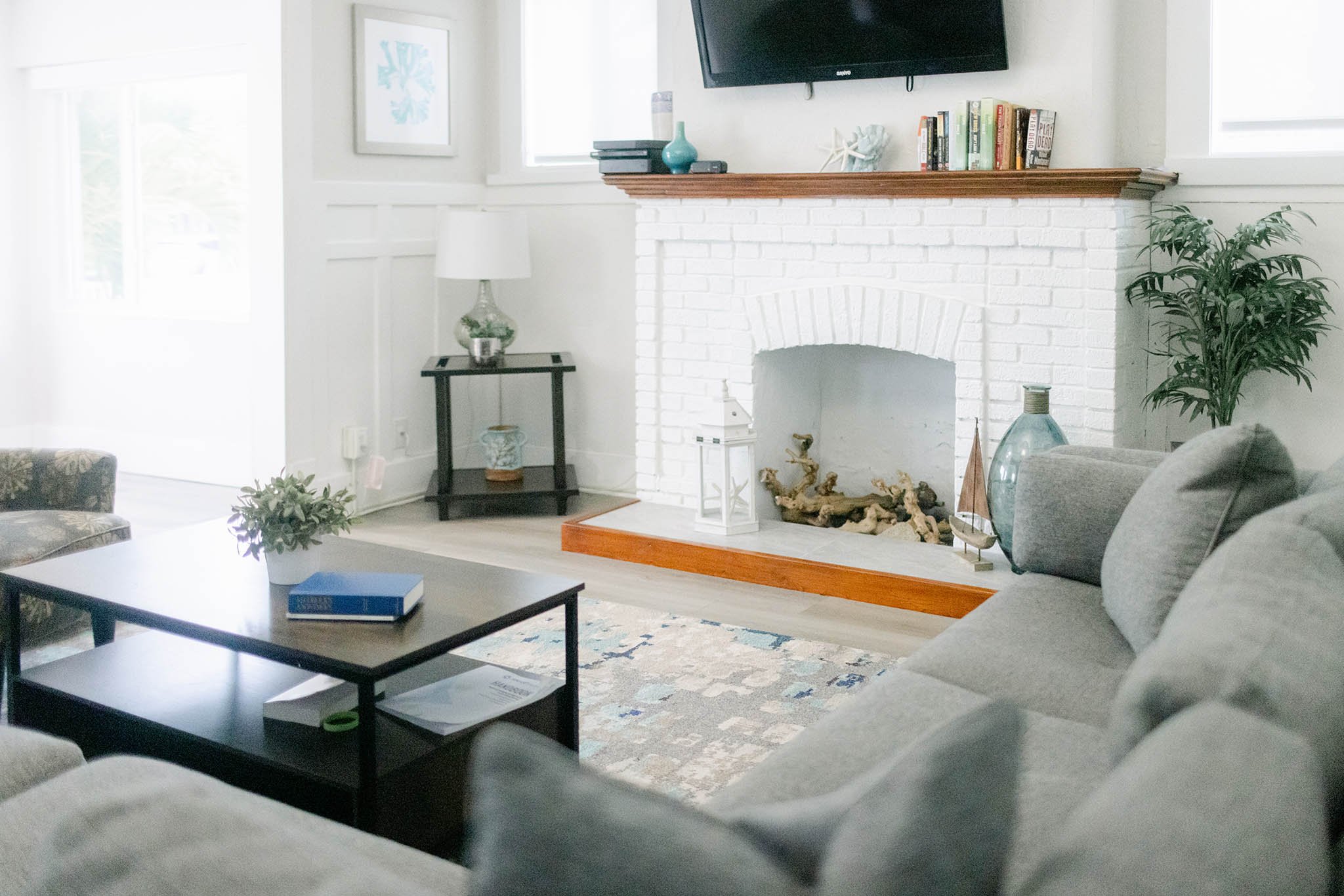
Outpatient Rehab Services in New Jersey
Beachway New Jersey provides an inclusive, caring environment for individuals seeking recovery from substance abuse and mental health disorders through outpatient services. The program offers a safe, supportive environment to help address these disorders while the client continues with their daily life.
What are outpatient services, exactly? They’re a range of clinical and therapeutic services offered in an outpatient environment, providing access to recovery and rehab for those who also need to work, attend school, or take care of family obligations. Outpatient rehab can also be a step-down process for those graduating from inpatient rehab who are still in need of structured support on a daily or weekly basis.
Learn more about our New Jersey Rehab Location.
Treatment Programs for Busy Schedules
Intensive outpatient (IOP) programs in New Jersey allow individuals to maintain busy schedules while approaching recovery in a supported and structured manner. Clients continue full-time work schedules, manage homes and children, or attend school, all while integrating individual and group therapy and other treatment methods into their days and weeks.
We know life can get busy, and prioritizing taking care of ourselves can be hard. At Beachway, NJ, we offer flexible scheduling with hybrid (virtual and in-person) options to make treatment and recovery possible.
4 Princess Road, Suite 208
Lawrence Township, NJ 08648
201-254-8440
Types of Outpatient Rehab Services
There are many types of outpatient rehab programs to choose from. At Beachway Therapy Center, we pride ourselves on a wide range of services to meet patients’ needs based on their weekly availability, budget, and more.
Three main types of outpatient services provided are:
- Intensive Outpatient Programs (IOP)
- Partial Hospitalization Programs (PHP)
- Medication-Assisted Treatment (MAT)
Outpatient Counseling
Outpatient counseling is one of the most common forms of outpatient rehab. These therapy sessions typically require a time commitment of just 1-2 hours per week. They can help provide a sense of community and emotional support or help patients develop tools to cope with specific situations. Examples of outpatient counseling include:
- Cognitive behavioral therapy– CBT: A type of talk therapy that helps individuals identify root causes for behavior and develop new coping mechanisms
- Dialectical behavior therapy -DBT: Another kind of talk therapy that focuses on managing intense emotions
- Eye movement desensitization and reprocessing – EMDR: A therapy that focuses on using eye movement when processing trauma to help identify triggers and support healthier responses
- Family Counseling: This option counsels family members about disorders and how to best support someone in recovery
- Gambling counseling: A specific therapy for those struggling with gambling addiction
- Group/Individual Counseling: Group and individual therapies help clients unpack what they’re learning and support growth through recovery
- LGBTQIA+ affirming: These therapies support individuals with various gender and sexual identities
- MAT (medication-assisted treatment): MAT treatment is used in both detox and mental health treatments to support physical needs
- Sober living assistance: Beachway works with clients to develop habits and support systems for a sober lifestyle
- Substance abuse counseling: Counselors work through group and individual sessions to address specific addiction needs
- Trauma-informed – survivors group: Hearing and responding to others can help individuals work through trauma in a more informed manner
- Virtual counseling: Remote counseling options provide better accessibility
Intensive Outpatient Programs
Intensive outpatient programs treat conditions such as addiction, eating disorders, or dependencies, where the individual doesn’t need 24/7 supervision and requires a high level of support through group therapy or holistic therapy. IOP is usually a commitment of around 9-plus hours per week.
In NJ, IOP accommodates individuals with structured yet flexible approaches to recovery, making it a good choice for many people who work full-time or have family obligations that make a residential program less possible.
Partial Hospitalization Programs
Partial hospitalization programs are a type of outpatient care that’s suited to people with dual conditions. This includes people who require outpatient therapy services during the day and specific accommodation at night (for their own benefit or safety) without around-the-clock supervision.
Medication-Assisted Treatment (MAT)
Medication-assisted treatment is a type of outpatient care that’s usually most effective when combined with therapy and holistic services. This method uses medication to balance the brain while we utilize therapy tools to teach the patient various coping skills. About 1 in 5 Americans take prescription medication for their mental health.
Meet our New Jersey Outpatient Clinicians
The clinicians at Beachway in NJ focus on personalized patient care by leveraging their unique skills, knowledge, and experience.
Dr. Clarissa Mulligan Attara, Ph.D., LPC, LMHC, LCADC, ACS (she/her)
Dr. Attara is the Clinical Director at Beachway New Jersey, and she provides counseling services to our clients. She’s a Licensed Professional Counselor, Licensed Clinical Alcohol and Drug Counselor, and an Approved Clinical Supervisor in New Jersey. Dr. Attara is a Licensed Mental Health Counselor in New York, and she received a Ph.D. in Counselor Education and Supervision from Capella University and a Master of Arts and Sciences in Clinical Mental Health Counseling from Georgian Court University.
She helps clients learn to manage the challenges so often experienced during recovery. Dr. Attara is also an LGBTQIA+ affirming counselor. Whether increasing coping skills for anxiety or depressive symptoms, exploring identity, navigating careers and education, relationships, life transitions, self-care, or gaining confidence in advocating for themselves, Dr. Attara shows up to support and guide each client.
She’s also passionate about providing trauma-informed counseling and is trained in Eye Movement Desensitization and Reprocessing (EMDR). For close to a decade, Dr. Attara has worked extensively with individuals struggling with substance use issues and addictions, supporting them in their recovery on their path to wellness and self-discovery.
Beth Pensabene (she/her), MBA, CADC Intern
Beth works with the multidisciplinary treatment team to help clients reach their goals. She believes in using psychoeducation to guide clients, and she often approaches her work using a lens of cognitive behavioral therapy (CBT).
Ms. Pensabene holds a Master of Science in Business Administration from St. Joseph’s University and a Bachelor of Arts in Business from the University of Delaware. She’s currently collecting hours towards her CADC and studying educational requirements for certification.
Her areas of interest include adults, anxiety and depression associated with substance abuse, grief and loss, families impacted by addiction, trauma, work/life balance, mindfulness, and meditation.
Finding the Right Outpatient Rehab Center
Choosing an outpatient rehab facility in New Jersey can seem daunting, but it starts with researching to find an accredited and licensed facility and finding a reputable rehab center like Beachway New Jersey, which is recognized by the National Association of Addiction Providers and Joint Commission Accredited. Any potential New Jersey Treatment Center should be licensed by the State of New Jersey Department of Health.
Types of treatment you should consider while evaluating possible treatment centers include:
- Group therapy
- Individual therapy
- Holistic therapy
- EMDR
- Trauma Informed Care
- Telehealth Services
Therapy for Addiction and Mental Health
Beachway’s goal is to provide flexible, comprehensive therapy options that meet a variety of client needs. When someone enters the outpatient treatment program, staff works with them to develop an individualized treatment plan that integrates evidence-based practices with holistic approaches to treat the entire person.
But Beachway New Jersey doesn’t stop there. Our professional teams know family is part of a client’s overall environment and support system. That’s why they extend supportive strategies to families and friends of individuals in the program.

Types of Outpatient Groups Offered at Beachway New Jersey
Beachway New Jersey offers a variety of group therapy options catering to different aspects of recovery. Clients can attend several group options or select the one that best suits their needs. Caring counselors go over options and help clients create an approach to treatment that works for their diagnoses, personality, and recovery needs.
Process Groups
Process groups are dedicated groups of peers within outpatient treatment who meet together with a therapist or counselor to discuss emotions and feelings and practice interpersonal skills and other coping mechanisms. They provide a safe space for processing what clients are working on in treatment.
These groups typically can be less structured or semi-structured and allow clients to feel empowered to talk about whatever they choose to work on. It can be helpful to use talk therapy in a group setting where others can process the emotional struggles they’re experiencing and provide an opportunity to gain insight into their behaviors and feelings from peers. While we may be experts in clinical treatment, the client is the true expert on themselves. A process group might focus on specific topics, or it may be open-ended. We believe in integrating process groups throughout treatment where it’s appropriate and needed. Our clinicians facilitate these groups but provide a space for clients to be open and share as much (or as little) as they want in these open, secure, and warm forums.
Psychoeducation Groups
This is where a clinician teaches members specific skills (history or neuroscience of addictive disorders; CBT/DBT skills). Often, the focus of psychoeducational groups is learning; it may be more of a reading and writing group or interactive with participation to enhance learning. Clinicians typically utilize several topics in these groups, including relapse prevention, coping skills and strategies, attachment theory education, family of origin concerns or developments, negative core beliefs, or other skills that will be taught and learned. Clients will learn about AA/NA/Smart Recovery/Refuge Recovery/Recovery Unanimous, and more support groups available, including descriptions and how they came to be (they’ll learn how to seek them out and why they can be helpful in recovery). They’ll also learn about addiction as a disease model and will be able to participate in question-and-answer sessions throughout.
Trauma Groups
In these groups, clients with trauma will have the opportunity to learn how trauma impacts the brain. They’ll learn about the connections between the amygdala, hippocampus, and the prefrontal cortex. Clients will learn about the vagus nerve, also known as the vagal nerves, and how they’re the primary nerves of your parasympathetic nervous system. They’ll also learn that their responses to triggered stimuli are typical for their experiences and how to manage symptoms as they arise. Clients are taught resourcing skills that can be used to regulate and center the nervous system. They’ll also learn about EMDR and trauma narratives and how they can be used in adjusting to IOP groups and regular talk therapy. Processing trauma requires a neurological component in addition to the intellectual and cognitive approach.
Coping Skills
This group teaches specific techniques, skills, and strategies designed to help you manage emotions, improve relationships, live mindfully, and challenge behaviors that no longer serve you well. Attendees at coping skills groups will learn to reduce the physical symptoms of stress, change/challenge unhelpful self-talk, identify and regulate emotions, set boundaries in relationships, and nurture healthy ones.
Cognitive Behavior Therapy (CBT) Groups
CBT rests on the foundation that thoughts control feelings and feelings control behaviors. Typically, unhelpful thinking patterns contribute to distress, social anxiety, and difficulties related to life transitions. CBT groups allow clients to benefit from peer connection and support, ultimately improving their quality of life. Learn more about CBT as a therapy modality.
Dialectical Behavior Therapy (DBT) Groups
DBT was developed by Dr. Marsha Linehan and originally intended primarily for those with Borderline Personality Disorder (BPD). This type of treatment can be appropriate for anyone who struggles with suicidal ideation, self-harm, trauma, emotional regulation, poor and unstable self-image, or substance use disorders.
Participants are welcome to join the group at any time throughout their treatment, and no specific diagnosis is required to learn DBT skills. Learn more about DBT as a therapy modality.
Art and Creative Groups
Beachway offers art and other creative interventions for our clients. These often include actions, movements, and activities rather than traditional talk therapy. Some examples are psychoeducation, role-playing, art therapy, journaling, poetry, movement/dance, psychodrama, and music. Visit the Holistic Therapy page to learn more about these modalities.
Family Groups
Family involvement is necessary for recovery. We offer family counseling sessions and family groups at Beachway New Jersey. Family groups help family members and clients heal, reorient, and restructure their family systems to avoid getting stuck or caught up in negative cycles. This includes educational programming, family therapy needs, and ways to support and avoid enabling loved ones in recovery. Read more about our family groups and offerings under our Family Recovery Program Tab.
Benefits of Outpatient Rehab
The many benefits of outpatient rehab are why so many Americans choose this option instead of or in addition to an inpatient treatment program. Advantages of outpatient care include:
- Flexibility in daily life
- Maintaining daily routine
- Continuing relationships with family, friends, or other support networks
- Less of a financial commitment than inpatient treatment
- Supports a gradual transition to independence after inpatient care
Insurance and Financial Considerations
At Beachway, we understand finances and insurance coverage remain barriers to mental health treatment for many Americans. In many cases, insurance providers offer some level of coverage for outpatient services. Coverage information can be found using the form on our website.
We offer various personalized payment plans to help individuals whose insurance only partially covers treatment and those who are self-funding their therapy. Our team is available to discuss financial and coverage options.
Aftercare and Relapse Prevention
At Beachway, we understand that the work doesn’t end when the inpatient or outpatient program is completed. We developed the aftercare program to continue supporting patients through groups and therapy. An intensive relapse prevention plan is critical for long-term recovery, which is why this is the focus of our aftercare treatment services.
Beachway’s aftercare program provides critical, flexible support to help prevent relapse. Without support, many people are unable to sustain the gains they make in inpatient and outpatient recovery programs, often resulting in dangerous relapses. Aftercare ensures clients have a soft landing spot and community support as they navigate the ongoing stresses of life while continuing to work on recovery and wellness.
Contact Our New Jersey Outpatient Rehab Center Today
Individuals struggling with addiction or a mental disorder on the East Coast can contact our Beachway facility in New Jersey today. Our compassionate team can help determine a flexible treatment plan for mental wellness.




